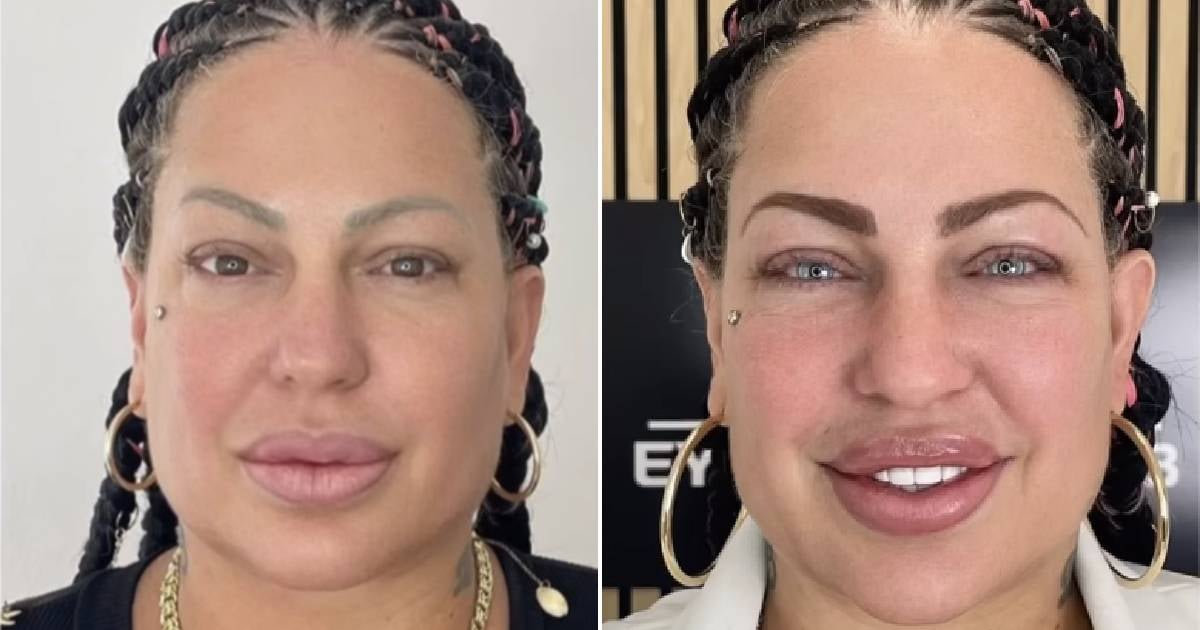
These days, the Cuban artists Dianelys Alfonso "La Diosa" and Osmany García are flaunting a new appearance thanks to the benefits of keratopigmentation, an advanced aesthetic technique to change the color of the eyes.
The artists have expressed their happiness and even posed together to show their followers their incredible now blue eyes, achieved at a clinic in Miami.
This aesthetic procedure changes the color of the eyes by means of corneal pigmentation using an ultra-precision laser to create a circular micro-tunnel in the cornea, where a pigment is then applied to cover the natural color of the eyes.
The magazine Blue Green Medical states that the technique is considered safe, but ophthalmologists warn that there are risks associated with it, such as infections, loss of sensitivity, and changes in vision.
Specifically, this surgical procedure works on the transparent layer that covers the front of the eye. There, a small and precise circular micro-tunnel is created, and pigment is applied inside it, covering the natural color of the eyes and providing the desired shade, the publication notes.
Unlike another technique known as lumineyes laser – which changes eye color from brown to blue and carries more severe risks such as uveitis or glaucoma – keratopigmentation makes it possible to transform brown eyes into blue, green, or any other desired shade.
However, they clarify that there are risks such as the possibility of developing eye infections during the healing process.
"Although this complication is uncommon, it is important to keep in mind that any surgical intervention on the eyes carries a risk of infection. It is essential to strictly follow the specialist's instructions to prevent any type of complication," they emphasize.
Another possible risk is the loss of ocular sensitivity and changes in vision, as the intervention may cause a temporary decrease in ocular sensitivity, which in most cases recovers over time.
They also point out that the deformation of the cornea caused by keratopigmentation can affect the quality of vision, leading to difficulties in visual acuity or alterations in color perception.
Other cases are that the eye color does not match the desired tone, causing great discomfort to the clients.
"The pigmentation can be irregular, leading to spots or areas of uneven color on the cornea. Additionally, over the years, the color may lose intensity or change, which could require touch-ups or even the removal of the pigmentation," says the text.
In the field of ophthalmology, there are mixed opinions about keratopigmentation as a technique for changing eye color. Ophthalmologists recommend caution and prioritizing eye health, and suggest exploring less invasive alternatives such as colored contact lenses or specialized makeup, the specialized blog states.Ophthalmology ChallengeI'm sorry, but it seems there is no text provided for translation. Please provide the text you would like to have translated.
They clarify that the procedure is irreversible and that the results, both positive and negative, can be permanent.
For the moment, Osmany García is so happy that he named the color of his eyes "García Blue."
Similarly, La Diosa stated that the experience was magnificent, her self-esteem is now "in the sky like the color of my eyes," and she assured that the procedure is "safe and quick."
Erratum: The previous version of this text described some features of another similar technique known as Laser lumineyes, which caused confusion among our readers. The current information is based on scientific articles published by the journals Blue Green Medical and Reto Oftalmología.
What do you think?
SEE COMMENTS (4)Filed under: